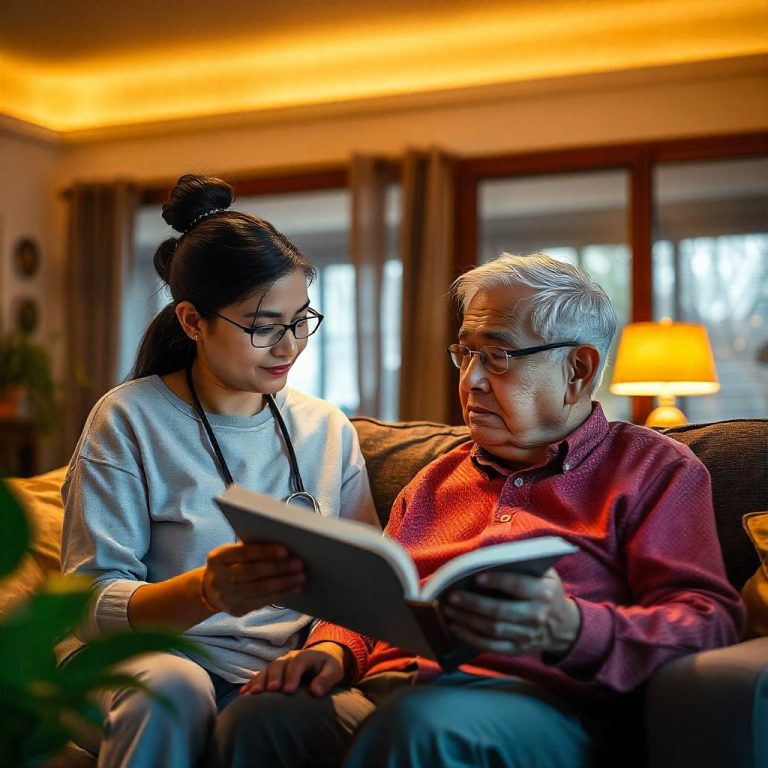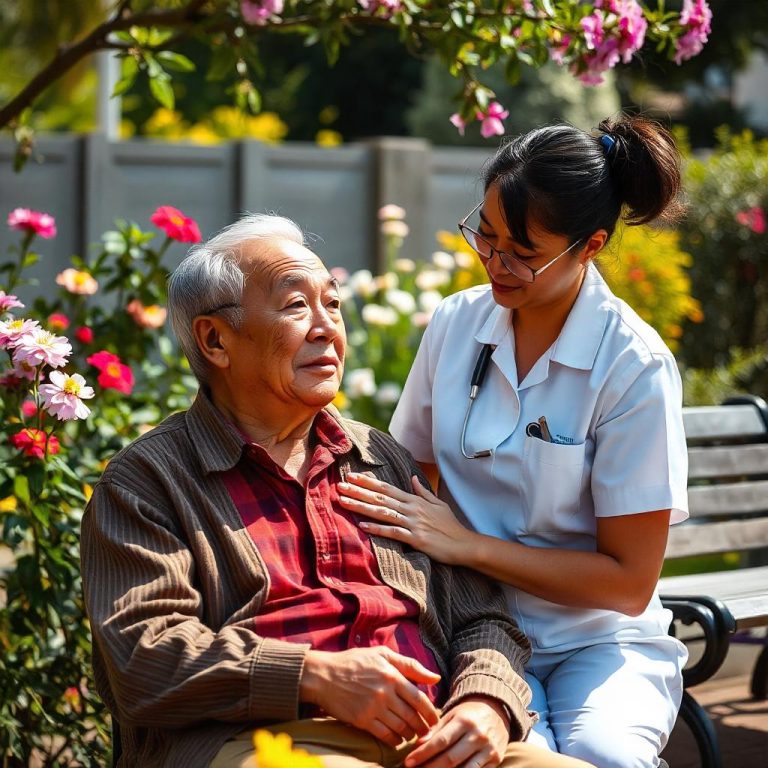Hospice care coordination is a specialized service designed to provide comfort, dignity, and support to individuals nearing the end of life. Hospice care is centered around palliative care, which focuses on alleviating symptoms, managing pain, and improving the quality of life for those with terminal illnesses. Care coordination in hospice ensures that the patient’s needs are met with compassion, offering a holistic approach to care that involves family members, healthcare professionals, and spiritual support.
What is Hospice Care Coordination?
Hospice care coordination is a comprehensive process that involves managing the medical, emotional, and practical needs of terminally ill patients. It focuses on ensuring that the patient receives care tailored to their individual preferences, including managing pain, offering psychological support, and providing assistance with daily living. The goal of hospice care coordination is to ensure that the patient is as comfortable as possible and that their final days are filled with peace and dignity.
Care coordinators in hospice services work closely with patients, families, and healthcare teams to develop a personalized care plan that aligns with the patient’s wishes. They ensure that all aspects of care, from medical treatment to emotional support, are seamlessly integrated into a cohesive plan that meets both the patient’s and their family’s needs.
Key Elements of Hospice Care Coordination
- Personalized Care Plans
- Description: Each patient in hospice care receives a personalized care plan that is developed based on their medical condition, preferences, and family input. This plan outlines the type of care, treatment options, symptom management strategies, and any spiritual or emotional support services that may be required.
- Benefits: A tailored care plan ensures that all aspects of the patient’s care are aligned with their needs and wishes. This plan is regularly updated to reflect changes in the patient’s condition or preferences.
- Pain and Symptom Management
- Description: One of the primary goals of hospice care is to manage the physical pain and symptoms associated with a terminal illness. Care coordinators work closely with healthcare providers to adjust medications and treatment plans to control symptoms such as pain, nausea, shortness of breath, and fatigue.
- Benefits: Effective pain and symptom management improves the patient’s quality of life by reducing discomfort and ensuring that they can spend their remaining time without unnecessary suffering.
- Emotional and Psychological Support
- Description: Hospice care is not just about physical comfort; it also involves addressing the emotional and psychological needs of patients and their families. Care coordinators may arrange for counseling, support groups, or spiritual care providers to help individuals cope with the emotional stress of facing the end of life.
- Benefits: Providing emotional support helps reduce anxiety, depression, and fear, offering peace of mind to both patients and their families during a difficult time.
- Family Support and Counseling
- Description: Hospice care coordinators support families by providing guidance on caregiving, decision-making, and coping with grief. They also educate family members about the end-of-life process, what to expect, and how they can contribute to the patient’s comfort.
- Benefits: Family support is vital for ensuring that loved ones are emotionally prepared and capable of handling the challenges of caregiving. It also helps family members cope with the inevitable loss and grief.
- Spiritual Care
- Description: Many hospice care plans incorporate spiritual care, which is tailored to the patient’s religious or spiritual beliefs. Care coordinators may collaborate with chaplains or spiritual counselors to offer support that aligns with the patient’s faith and beliefs.
- Benefits: Spiritual care provides comfort and a sense of peace, helping patients and families navigate the emotional and existential aspects of end-of-life care.
- Coordinating Medical Care
- Description: Hospice care coordinators work closely with physicians, nurses, and other healthcare professionals to ensure that all aspects of the patient’s care are effectively coordinated. This includes ensuring that prescriptions are filled, medical equipment is provided, and any necessary treatments or procedures are conducted.
- Benefits: Coordinating medical care ensures that patients receive the proper treatment at the right time, minimizing hospitalizations and unnecessary medical interventions. It also provides a seamless transition between different healthcare providers.
- 24/7 Availability
- Description: Hospice care often includes 24/7 availability of nursing support and emergency assistance. Care coordinators ensure that patients and families have access to healthcare professionals at any time, day or night, to address immediate needs or concerns.
- Benefits: The round-the-clock availability ensures that patients can receive immediate care and attention, allowing families to feel more secure and supported during the final stages of life.
- End-of-Life Decision Support
- Description: Hospice care coordinators assist patients and families in making informed decisions about end-of-life care. This includes discussions about resuscitation preferences, life support options, and any other medical interventions that may be in line with the patient’s wishes.
- Benefits: End-of-life decision support helps ensure that the care provided aligns with the patient’s wishes and helps families navigate difficult conversations around death, ensuring that all decisions are made with clarity and understanding.
- Bereavement Support
- Description: After the patient passes, hospice care coordinators provide ongoing support to family members through bereavement counseling and grief support groups. This is an important part of the hospice care process, ensuring that families are not left to cope with their loss alone.
- Benefits: Grief and bereavement support help families process their emotions and come to terms with their loss, which can promote healing and prevent complicated grief.
- Coordination with Other Providers
- Description: Hospice care coordinators collaborate with various service providers, including home health aides, social workers, and volunteer programs. They ensure that all aspects of care are managed efficiently and that additional services, such as meal delivery or transportation, are arranged as needed.
- Benefits: Coordinating services from multiple providers ensures that the patient’s care is comprehensive and that no aspect of their well-being is overlooked during the final stages of life.
Benefits of Hospice Care Coordination
- Improved Quality of Life
- By managing pain and providing comprehensive emotional, spiritual, and physical support, hospice care enhances the quality of life for terminally ill patients. This holistic approach ensures that patients can experience comfort and dignity during their final days.
- Seamless Care Transitions
- Hospice care coordination ensures that patients experience a seamless transition between different levels of care, whether they are at home, in a hospice facility, or a hospital. This reduces the burden on families and ensures continuous, uninterrupted care.
- Enhanced Family Support
- Hospice care coordinators provide essential support to families, helping them navigate the complexities of end-of-life care and grief. By offering counseling, education, and emotional support, families are better prepared for the challenges they face.
- Respecting Patient Wishes
- Hospice care coordination ensures that care plans are aligned with the patient’s preferences and values. Care coordinators facilitate discussions about end-of-life wishes, helping to ensure that patients are treated with the utmost respect and care according to their desires.
- Cost-Effective Care
- Hospice care often provides a more cost-effective option for families compared to extended hospital stays or invasive treatments that may not improve the patient’s quality of life. The focus on comfort and symptom management avoids unnecessary interventions, reducing overall healthcare costs.
The Role of Hospice Care Coordinators
Hospice care coordinators are responsible for overseeing all aspects of the patient’s care, ensuring that all services are provided as needed, and addressing any concerns or changes in the patient’s condition. They serve as the primary point of contact for both patients and families, offering support, resources, and guidance throughout the hospice process.
Care coordinators also collaborate with a team of medical professionals, including doctors, nurses, chaplains, social workers, and volunteers, to ensure the patient’s care plan is comprehensive and effective. They ensure that everyone involved in the care process is informed, providing peace of mind for both the patient and their loved ones.






